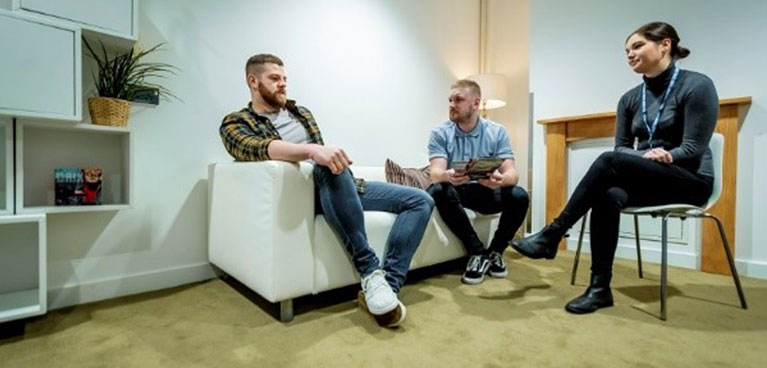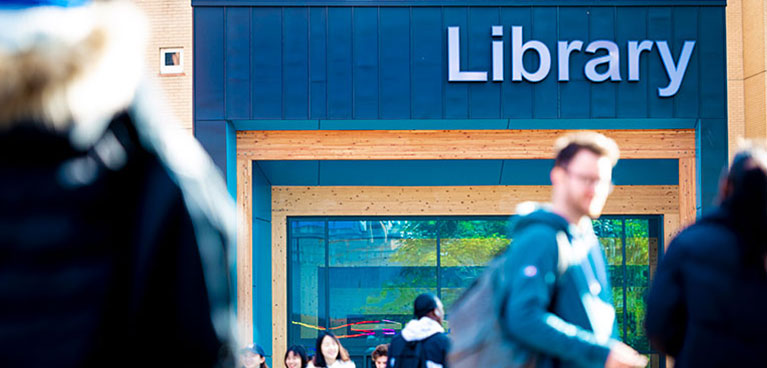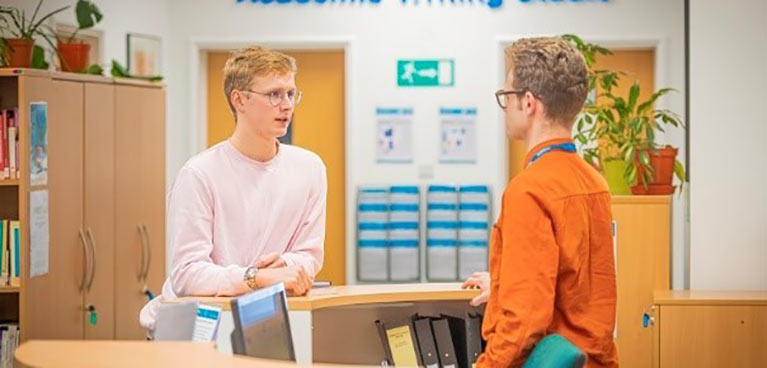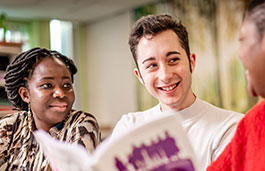Search
Childhood, Youth and Education Studies BA (Hons)
Study level: Undergraduate
Develop the knowledge and skills needed to support children, young people and communities in meaningful and informed ways.
Course features
Course option
Year of entry
2026-27
Location
Coventry University (Coventry)
Study mode
Full-time
Sandwich
Duration
3 years full-time
4 years sandwich
UCAS codes
L591
Start date
September 2026
November 2026
January 2027
March 2027
May 2027
July 2027
Course overview
Prepare for a range of careers supporting children and young people by studying a transdisciplinary mix of subject areas, including the sociology and psychology of childhood, risks to children's attainment and wellbeing, and professional skills needed to work effectively in this field.
- Contemporary curriculum: by gaining an understanding of contemporary issues for children and young people, you should learn how to support their education and wellbeing in the context of a rapidly changing world.
- Make a difference: develop the knowledge, skills and attributes required to support and promote the development of children and young people.
- Take control: choose from a range of topics within modules to focus on areas that align with your interests. Interactive workshops and individual and group tutorials will facilitate your learning.
- Learn by doing: the course provides opportunities for practical application of your learning, helping you to develop key employability skills and link theory and practice. See modules and teaching contact hours sections for more information.
Rated Gold Overall
Teaching Excellence Framework (TEF) 20235 QS Stars for Teaching and Facilities
QS Stars University RatingsTop 5 Student City in England (Coventry)
QS Best Student Cities Index 2026Why you should study this course
- Diverse career paths: this course aims to prepare you for various careers including teacher training, youth and community work, family support, social work and more.
- Innovative learning environment: learn in a collaborative, forward-thinking environment with like-minded peers, fostering both personal and professional growth.
- Project-based learning: actively engage in real-world, meaningful projects. Work on complex problems, create tangible solutions and develop essential skills such as critical thinking, collaboration and communication. Assessments are designed to replicate the type of work and tasks carried out by people working with children and young people. You will design interventions, present to audiences, and produce reports and vlogs that showcase your expertise and real-world readiness.
- Global perspective: an international focus aims to broaden your understanding of childhood and youth education from a global standpoint.
- Expert insights: engage with guest speakers and professionals from fields such as special educational needs, child protection and youth work.2
What you'll study
We regularly review our course content, to make it relevant and current for the benefit of our students. For these reasons, course modules may be updated.
How you'll learn
Learn through hands-on activities and real-world examples, using the same approaches professionals use in the field. It’s all about helping you build the skills you need to feel confident and prepared for your future career.
Teaching methods may include:
- interactive workshops where you’ll take part in group discussions, explore case studies, and engage in activities to help you connect what you learn to real situations
- independent learning/self-directed group work and projects
- placement experiences working with children or young people2
- role plays which give you the chance to try out professional situations and develop key professional skills in a safe environment
- guest lectures from professionals working in areas like education, youth work and health, which provide you with insight into a range of roles and important networking opportunities.2
Teaching contact hours
As a full-time undergraduate student, you will study modules totalling 120 credits each academic year. You will normally study one 30-credit module at a time. A typical 30-credit module requires a total of 300 hours of study made up of teaching contact hours, guided and independent study.
You will need to complete 100 hours of practical learning in external childhood and youth settings during your first year and another 100 hours during your final year. We will support you in locating suitable places to complete your experiences. If for any reason you are unable to complete the required professional experience hours in an external setting, the course team will facilitate alternative options, on campus or virtually.2
Teaching hours
Teaching hours may vary depending on your year of study and selected modules. During your first year, you can expect 12-15 teaching hours each week. You will also have the option to attend additional sessions, including time with a progress coach or to meet with staff for advice and feedback. As you progress through your studies, teaching hours may reduce.
Guided and independent study
Throughout your studies, you will be expected to spend time in guided and independent study to make up the required study hours per module. You’ll be digging deeper into topics, review what you’ve learned and complete assignments. This can be completed around your personal commitments. As you progress through your studies, you’ll spend more time in independent study.
Online learning
As an innovative university, we use different teaching methods including online tools and emerging technologies. So, some of your teaching hours and assessments may be delivered online.
Assessment
This course incorporates new and innovative assessment methods aligned with current industry standards, designed to provide you with practical, real-world skills to advance your professional readiness and career prospects.
Assessment methods may include:
- posters
- vlogs
- case study reports
- portfolios
- presentations
- reflective journals
- structured written projects
- interviews.
The Coventry University Group assessment strategy ensures that our courses are fairly assessed and allows us to monitor student progression towards achieving the intended learning outcomes.
Entry requirements
Typical entry requirements:
Not got the required grades? We offer this degree with an integrated foundation year.
Fees and funding
| Student | Full-time | Part-time |
|---|---|---|
| UK, Ireland*, Channel Islands or Isle of Man | 2026/27 fees TBC 2025/26 fees: £9,535 per year |
Not available |
| EU | 2026/27 fees TBC 2025/26 fees: £9,535 per year with EU Support Bursary** 2026/27 fees TBC 2025/26 fees: £16,800 per year without EU Support Bursary** |
Not available |
| International | 2026/27 fees TBC 2025/26 fees: £16,800 per year |
Not available |
If you choose to study this course with a professional placement2 or study abroad year, you will need to pay a tuition fee3 to cover your academic support throughout your placement year. Students commencing their professional placement in the academic year 2027/28 will pay £1,500 if they are paying UK fees, or £1,800 if they are paying international fees.
For advice and guidance on tuition fees and student loans visit our Undergraduate Finance page and see The University’s Tuition Fee and Refund Terms and Conditions.
The University will charge the tuition fees that are stated in the above table for the first Academic Year of study. The University will review tuition fees each year. For UK (home) students, if Parliament permits an increase in tuition fees, the university may increase fees for each subsequent year of study in line with any such changes. Note that any increase is expected to be in line with inflation.
If you choose to study this course with a professional placement, the University will charge the tuition fees stated above for those on a placement during Academic Year 2027/28. The University will review professional placement tuition fees each year. For UK (home) students, the University may increase fees for each subsequent year of study, but such that it will be no more than 5% above inflation.
For international students, we may increase fees each year, but such increases will be no more than 5% above inflation. If you defer your course start date or have to extend your studies beyond the normal duration of the course (e.g. to repeat a year or resit examinations) the University reserves the right to charge you fees at a higher rate and/or in accordance with any legislative changes during the additional period of study.
We offer a range of International scholarships to students all over the world. For more information, visit our International Scholarships page.
Tuition fees cover the cost of your teaching, assessments, facilities and support services. There may be additional costs not covered by this fee such as accommodation and living costs, recommended reading books, stationery, printing and re-assessments should you need them. Find out what's included in your tuition costs.
The following are additional costs not included in the tuition fees:
- Any optional overseas field trips or visits: £400+ per trip.
- Any costs associated with securing, attending or completing a placement (whether in the UK or abroad).
*Irish student fees
The rights of Irish residents to study in the UK are preserved under the Common Travel Area arrangement. If you are an Irish student and meet the residency criteria, you can study in England, pay the same level of tuition fees as English students and utilise the Tuition Fee Loan.
**EU Support Bursary
Following the UK's exit from the European Union, we are offering financial support to all eligible EU students who wish to study an undergraduate or a postgraduate degree with us full-time. This bursary will be used to offset the cost of your tuition fees to bring them in line with that of UK students. Students studying a degree with a foundation year with us are not eligible for the bursary.
Facilities
The Alison Gingell building provides facilities for teaching and research, featuring two full-size homes which can be used for workshops mimicking working scenarios with children, young people and their families.

Community houses
The Alison Gingell building features two full-size residential homes. Our students use these to simulate working scenarios with different client groups.

The Library
The Lanchester Library has a team of dedicated academic liaison librarians to give you specialist help and support. You’ll also have access to subject-specific databases of journal articles related to social work, social sciences, health and education.

Academic support
No matter which degree you’re studying, you’ll find a lot of support on campus, including the Centre of Academic Writing and sigma, which offers mathematics and statistics support.
Facilities are subject to availability. Access to some facilities (including some teaching and learning spaces) may vary from those advertised and/or may have reduced availability or restrictions where the university is following public authority guidance, decisions or orders.
Careers and opportunities
Throughout the course, you should develop a broad range of highly valued skills to reflect the changing needs of industry, including exceptional communication, project planning, critical thinking and analysis, problem-solving and powerful presentation and listening skills.
The practical nature of this course means that on successful graduation, you should have substantial placement experience and the practical knowledge and problem-solving skills needed to move into a range of different child-related professions. You may also decide to study further professional qualifications such as a postgraduate certificate in education, a master's degree in social work or a master’s degree in psychology.
Graduates of this course have entered directly into a range of exciting roles in various settings, including the following:
- Teaching assistant
- Play specialist in a primary school
- SENCO
- Learning mentor
- LAC (Look After Child) advisor
- Youth worker
- Children and support family worker
- Children and young people’s case worker
- Children’s residential worker (therapeutic).
The graduate destinations listed above illustrate potential career paths. You may need to gain additional qualifications or practical experience, pass professional examinations, complete training, cover associated costs and meet specific visa or immigration requirements to secure employment in these fields.
Where our graduates work
Graduates have gone on to be employed in a range of practice settings and roles:
- Primary school teacher (with a PGCE or equivalent training)
- Teaching assistant
- Special Educational Needs (SEN) support worker
- Early years practitioner
- Education welfare officer
- Project officer for child or youth charities
- Campaign or policy officer (children’s rights, education, etc.)
- Advocacy worker for vulnerable youth
- Education policy advisor.
Further study
You may be entitled to an alumni discount on your fees if you decide to extend your time with us by progressing from undergraduate to postgraduate study.

Discover Phoenix+
Phoenix+ brings you together with other students to learn, experience and develop essential knowledge and skills. Whatever destination you choose, it's about preparing you for life after university.
Learn more about Phoenix+How to apply
You may also like

Social Work BA (Hons)






